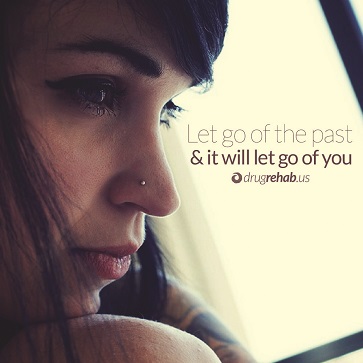Blocking Memories To Heal From Addiction?
Addiction is a complex disease of the brain that ties people to chemical substances and destroys lives if left untreated. Unlike many physical illnesses, healing from addiction has never been straightforward. Researchers have worked hard to understand this disease, and, as our understanding has evolved, we have come to learn that memory plays an important role in how addiction takes over the brain.
Addiction And The Brain
 Your brain contains a reward system, which gives you a pleasurable feeling when you do or experience something positive. For instance, when you get a hug from someone you love, this reward system causes a chemical called dopamine to be released in your brain. Dopamine makes you feel good. Drugs act like a big switch that turns on a flood of dopamine—far more than is released during normal, pleasurable activities.
Your brain contains a reward system, which gives you a pleasurable feeling when you do or experience something positive. For instance, when you get a hug from someone you love, this reward system causes a chemical called dopamine to be released in your brain. Dopamine makes you feel good. Drugs act like a big switch that turns on a flood of dopamine—far more than is released during normal, pleasurable activities.
The powerful high experienced with drug use often leads to more drug use. Over time, your brain will respond by decreasing the number of receptors for dopamine. This means you need more of the drug to get any kind of pleasurable feeling and when you don’t get it, you feel terrible. This cycle of withdrawal, cravings and relief are centered in the brain and lead to addiction.
Addiction And Memory
As modern research is beginning to discover, the changes to the reward system are not enough to fully explain addiction. Addiction also involves memories. Every time a person takes a drug and gets a flood of dopamine, the brain makes a strong memory associated with that high. Often connected to this memory is what led the person to use the drug in the first place: an emotion, a stressful situation or another memory.
It turns out that these memories are the key to why drug addiction is so hard to overcome. Addicts quit over and over again, but relapse and come back to drug use because of memories. Even after years sober, an addict may have a memory of drug use triggered by an external factor. This could be a place where he used drugs in the past, or a person with whom he used, or even just the feeling of stress or fear that he long ago associated with drug use.
Memories are tied to learning, and addicts have learned when and in which situations to use drugs. This makes it very difficult not to relapse in the presence of these learned triggers.
Blocking Memories To Help Treat Addiction
With the knowledge of the role that memories play in addiction and relapse, experts are trying to develop treatments that block the memories that trigger drug or alcohol use. Researchers at UC San Francisco have discovered a molecule that could be manipulated to do just that. The molecule is part of a pathway in the brain that signals memories related to addiction.
Work on blocking this pathway in rats is showing great promise for treating humans with addiction. The technique targets specific memories as opposed to blocking out memories without discretion.
The potential for being able to help recovering addicts avoid relapse by blocking memories is promising and hopeful. For addicts who have been clean for years, a relapse is still possible thanks to these powerful memories. It can be incredibly frustrating to be unable to resist a craving, but with more research and understanding of addiction and the brain, we may be able to break the hold drugs have on addicts.
Learn More About Addiction Recovery Today!



